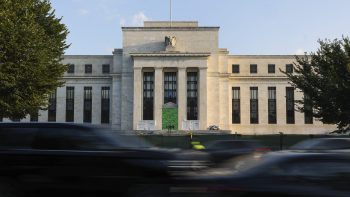Splitting the check increases the pain
TEXT OF COMMENTARY
Kai Ryssdal: A dinner out with friends is supposed to be relaxing, not painful. What are the topics you’re supposed to stay away from? Politics and religion, right?
Economics, too, it seems, because commentator Dan Ariely says nickel and diming to split the check isn’t worth the hassle.
Dan Ariely: When the server drops off the check at the end of a meal, people often scramble to figure out the norms for payment. Do we each pay for what we ordered? Do we split the bill evenly even if John had that extra glass of wine and the creme brulee?
Findings from behavioral economics tell us that one person should pay the entire bill and that the person paying should alternate over time. When we pay any amount of money, we feel some psychological pain. We call this the pain of paying. This is the unpleasantness that is associated with forking over our hard earned cash. But it also turns out that this pain does not increase linearly with the cost of the meal. This means that when we double the payment, the pain doesn’t double; it increases just by a bit. In fact, the biggest increase in the pain of paying comes when we switch from paying nothing to paying something.
Now, it’s easy to see why one person should pay the entire bill. How so? Well, if every person paid their share, they would all experience some pain of paying.
But if only one person paid the entire bill, then the pain of paying for that person will not be that much higher than if he paid just for himself — let’s say by only one and a half times. Meanwhile, everyone else at the table is pain free.
Is this system financially efficient? Probably not, because different meals cost different amounts or the person whose turn it is may be out of town. But even if you end up paying a bit more in the long run for engaging in this practice, you are likely to experience less pain of paying and have more fun dining out with your friends.
Ryssdal: Dan Ariely’s a professor of behavioral economics at MIT. His most recent book is called “Predictably Irrational.”
There’s a lot happening in the world. Through it all, Marketplace is here for you.
You rely on Marketplace to break down the world’s events and tell you how it affects you in a fact-based, approachable way. We rely on your financial support to keep making that possible.
Your donation today powers the independent journalism that you rely on. For just $5/month, you can help sustain Marketplace so we can keep reporting on the things that matter to you.


















